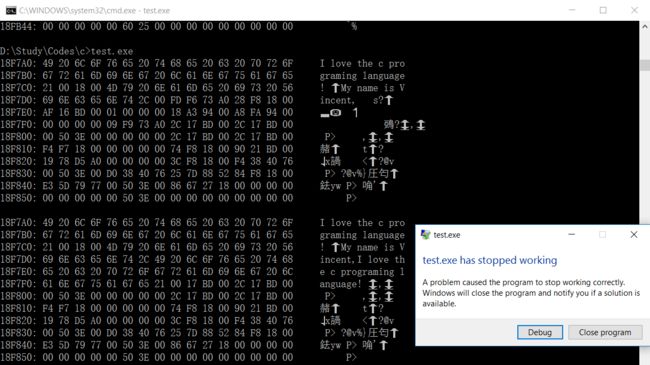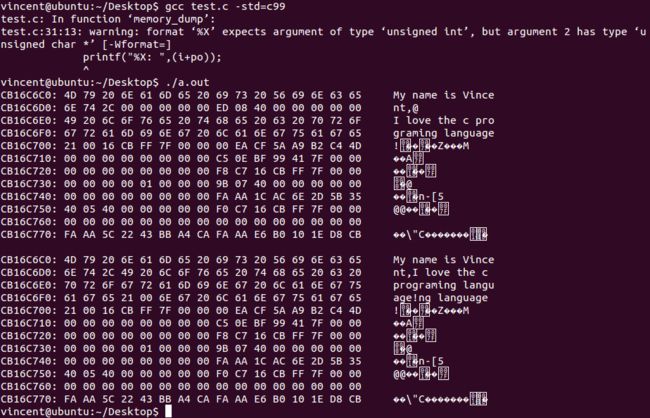- Dufs开源Web文件服务器
爱辉弟啦
linux运维linux运维服务器Web文件服务器开源软件
介绍:Dufs是一个独特的实用文件服务器,支持静态服务,上传,搜索,访问控制,webdav…GitHub-sigoden/dufs:Afileserverthatsupportsstaticserving,uploading,searching,accessingcontrol,webdav…功能列表提供静态文件下载文件夹为zip文件上传文件和文件夹(拖放)创建/编辑/搜索文件可恢复的部分上传/下
- C++ 多态 初学笔记
NicOym
C++c++
多态虚函数虚函数的使用条件虚函数详解对象多态多重继承时,类型转换的练习(1)情况1:(2)情况2:(3)情况3:(4)情况4:对象多态动态强制转换dynamic_casttypeid抽象类类的成员函数的函数指针概念:允许使用统一的接口来操作不同类型的对象。多态的作用:减少重复代码,提高代码扩展性静态多态:函数重载函数模板动态多态继承虚函数虚函数:动态绑定静态绑定个人记法(可能有误):动态绑定是调用
- 同城双活和两地三中心架构设计
架构未来
数据库网络架构
一、同城双活同城双活是在同城或相近区域内建立两个机房。同城双机房距离比较近,通信线路质量较好,比较容易实现数据的同步复制,保证高度的数据完整性和数据零丢失。同城两个机房各承担一部分流量,一般入口流量完全随机,内部RPC调用尽量通过就近路由闭环在同机房,相当于两个机房镜像部署了两个独立集群,数据仍然是单点写到主机房数据库,然后实时同步到另外一个机房。下图展示了同城双活简单部署架构:服务调用基本在同机
- mysql gtid 主从_基于GTID搭建主从MySQL
呓人61
mysqlgtid主从
基于gtid搭建主从MySQL一、GTID的使用想让主从之间使用gtid的方式同步数据,需要我们在配置文件中开启mysql对gtid相关的配置信息找到my.cnf,在mysqld模块中加入如下的配置。(主库从库都这样)#on表示开启,OFF表示关闭gtid-mode=ON#下面的两个变量必须开启,否则MySQL拒绝启动#通常情况,从服务器从主服务器接收到的更新不记入它的二进制日志。该选项告诉从服务
- 如何安装python3.7.4_银河麒麟安装Python3.7.4以及升级自带OpenSSL
weixin_39873191
如何安装python3.7.4
银河麒麟安装Python3.7.4以及升级自带OpenSSL升级OpenSSL1.下载opensslwgethttps://www.openssl.org/source/openssl-1.1.1a.tar.gztar-zxvfopenssl-1.1.1a.tar.gzcdopenssl-1.1.1a2.编译安装./config--prefix=/usr/local/opensslno-zlib#
- python多进程编程_深入理解python多进程编程
weixin_39620001
python多进程编程
1、python多进程编程背景python中的多进程最大的好处就是充分利用多核cpu的资源,不像python中的多线程,受制于GIL的限制,从而只能进行cpu分配,在python的多进程中,适合于所有的场合,基本上能用多线程的,那么基本上就能用多进程。在进行多进程编程的时候,其实和多线程差不多,在多线程的包threading中,存在一个线程类Thread,在其中有三种方法来创建一个线程,启动线程,
- python多进程编程实例_Python多进程编程multiprocessing代码实例
weixin_39791386
python多进程编程实例
在多线程与多进程的比较这一篇中记录了多进程编程的一种方式.下面记录一下多进程编程的别一种方式,即使用multiprocessing编程importmultiprocessingimporttimedefget_html(n):time.sleep(n)print('subprocess%s'%n)returnnif__name__=='__main__':#多进程编程process=multipr
- 【Elasticsearch 实战应用】
wenshao.du
elasticsearch
Elasticsearch实战应用在现代企业技术架构中,Elasticsearch因其出色的性能、可扩展性和易用性,成为了处理大规模数据和构建搜索引擎的首选工具。本文将通过一个实际案例,详细讲解如何在SpringBoot项目中集成Elasticsearch,进行数据索引、搜索、聚合分析等操作。1.Elasticsearch简介Elasticsearch是一个基于ApacheLucene构建的开源分
- python之openpyxl模块
weixin_34248849
python数据结构与算法测试
一.Python操作EXCEL库的简介1.1Python官方库操作excelPython官方库一般使用xlrd库来读取Excel文件,使用xlwt库来生成Excel文件,使用xlutils库复制和修改Excel文件,这三个库只支持到Excel2003。1.2第三方库openpyxl介绍第三方库openpyxl(可读写excel表),专门处理Excel2007及以上版本产生的xlsx文件,xls和x
- mysql开启gtid主从切换_Mysql 基于GTID的主从复制及切换
蕲艾唉啊
mysql开启gtid主从切换
参考http://imysql.com/tag/gtidhttp://mysqllover.com/?p=594Mysql基于GTID的主从复制及切换一、主从复制配置两个mysql服务的my.cnf中相关内容配置[mysqld]#从复制数据库表设置replicate-wild-ignore-table=mysql.%,information_schema.%,innodb.%,innodb_log
- SpringBoot+restFul+filter+threadLocal实现多租户的项目
梦想一直在路上
本片博客参考了https://blog.csdn.net/gebitan505/article/details/51614805threadLocal的目的是:实现变量的全局话,在当前的项目当中是实现了用户名的多租户状态下的全局话fiter:进行token的拦截,ThreadLocal的代码packagecom.zwl.util;importjava.util.HashMap;importjava
- 工作流开发过程
Dev2010Daily
软件开发基础知识工作jbpm引擎java
1、首先要识别出工作流,即找出候选的工作流。2、可视化流程建模,此处将用到的是jBPM(jBPMGraphicalProcessDesignerGPD)editor3、开发运行时的元件4、布署运行时引擎jBPM提供了多种不同的布署场景:(1)引擎与实例同时使用---jBPMConsole(2)用JAVA类实例来实例化引擎5、实例化运行时实例6、监控和审计
- MySQL 很重要的库 - 信息字典
shenghuiping2001
网络安全mysqladbandroidinformation
在做owaspSQL注入的时候,有个很重要的库,那就是信息库:这个库就是:information_schema;(准确的说,数据字典)mysql>showdatabases;+--------------------+|Database|+--------------------+|information_schema|下面区这个库里面看看table:mysql>select*fromTABLES
- javamail发( 收)邮件
sageparadise
Javajavamailstringexception邮件服务器emailproperties
MyAuthenticator.javapackagecn.com.vetc.survey.mail;importjavax.mail.Authenticator;importjavax.mail.PasswordAuthentication;publicclassMyAuthenticatorextendsAuthenticator{privateStringuserName=null;priv
- Strus2 @JSON(serialize=false),过滤不需要的变量
sageparadise
struts2Javasstruts2.0json
在用struts2的Action加@ParentPackage("json-default")注解orstruts.xml配置文件中Action所在的package继承json-default,Action中方法返回json类型的数据时,在没有任何设定的情况下,改类下的所有getter方法的返回值将被包含在返回给客户端的JSON字符串中。需要剔除不需要包含的属性,在类结构结构中需要在getter方
- SOA 术语概述,第 2 部分: 开发流程、模型和资产
rochening
soaumlibmeclipse工作平台
文档选项将此页作为电子邮件发送拓展Tomcat应用下载IBM开源J2EE应用服务器WASCE新版本V1.1级别:初级BertrandPortier(
[email protected]),IT架构师,IBM,Intel,Microsoft,HP2007年5月23日了解一些基本SOA术语。本文是本系列的第2部分,BertrandPortier将在其中定义一些术语(包括开发流程、模型和资产)并说明为
- wireshark解密TLS流量
头顶路由器
网络工程师
原理:通过设置环境变量截取浏览器的master_secret,进而实现解密TLS的目的。未解密的TLS包:1.设置系统属性环境变量右键我的电脑点击属性>>高级系统设置>>环境变量
- python使用多进程multiprocessing
小蜗笔记
pythonpython
python使用多进程multiprocessing1多进程解释2进程的演示3进程池方法4pool.map()的解析pool.map()的基本用法返回值语法示例注意事项适用场景5pool.join()详解示例注意事项pool.join()的运行逻辑阻塞特性的影响对计算速度的影响示例总结6apply_async(),apply(),和pool.map()`apply_async()`特性:语法:`a
- centos下安裝python
白小白的小白
pythonpythoncentos
更新系统文件yumupdateyuminstallzlib-develbzip2-developenssl-develncurses-develsqlite-develreadline-develtk-devellibffi-develgccmake下载安装包并解压wgethttps://www.python.org/ftp/python/3.7.6/Python-3.7.6.tar.xztar-
- 《中型 Vue 项目:挑战与成长》
计算机毕设定制辅导-无忧学长
#Vuevue.jsflutter前端
一、引言在当今的前端开发领域,Vue作为一款渐进式JavaScript框架,以其强大的功能和灵活性备受开发者青睐。对于中型Vue项目而言,其重要性不言而喻。中型Vue项目通常在功能复杂度和规模上介于小型项目和大型项目之间,既需要应对一定的业务需求挑战,又要考虑开发效率和可维护性。中型Vue项目面临着诸多挑战与机遇。挑战方面,随着项目规模的扩大,代码的复杂性增加,如何进行有效的状态管理、组件化开发以
- 上海计算机学会2020年10月月赛C++丙组T5小球的颜色
长春高老师编程
上海计算机学会月赛丙组c++算法开发语言
小球的颜色内存限制:256Mb时间限制:1000ms题目描述给定n个数字a1,a2,…,an。我们需要更改一些数字,使得最后数字种类不超过k种,请问最少需要更改多少数字。输入格式第一行:两个整数n与k;第二行:n个整数a1,a2,…,an。输出格式单个整数,表示答案。数据范围对于30%的数据,1≤n≤100;对于40%的数据,1≤n≤1000;对于100%的数据,1≤k≤n≤2×10^5。1≤ai
- npm介绍
小玉起起
vuejsnpm前端node.js
npm(NodePackageManager)是Node.js的默认包管理工具,用于管理JavaScript和Node.js项目的依赖关系。它既是一个包管理工具,又是一个在线仓库,开发者可以通过它分享和下载开源的JavaScript库和工具。npm是世界上最大的开源软件注册表,托管着超过一百万个包。主要功能和特点1.包管理npm的核心功能是管理依赖包。它允许开发者方便地安装、更新和删除项目中的依赖
- kafka 学习笔记3-传统部署Kraft模式集群——筑梦之路
筑梦之路
kafka学习笔记
部署kafka集群规划一般模式下,元数据在zookeeper中,运行时动态选举controller,由controller进行Kafka集群管理。kraft模式架构下,不再依赖zookeeper集群,而是用三台controller节点代替zookeeper,元数据保存在controller中,由controller直接进行Kafka集群管理。ip主机名角色nodeid192.168.100.131
- 亚马逊CloudFront:一次一个HTTP请求提升网络性能
AI航海家
AWS
亚马逊CloudFront:一次一个HTTP请求提升网络性能关键字:[AmazonWebServicesre:Invent2024,亚马逊云科技,生成式AI,CloudFront,HttpRequestPerformance,CloudfrontDnsRouting,EdgeCachingArchitecture,ServerlessEdgeCompute,OriginSecurity]导读无论您
- MySQL备份还原(多种不同的方式备份还原)
obboda
数据库
一、mysqldump+binlog实现完全+增量备份1)素材准备:mysql>createdatabaseschool;QueryOK,1rowaffected(0.01sec)mysql>useschoolDatabasechangedmysql>CREATETABLE`Student`(->`Sno`int(10)NOTNULLCOMMENT'学号',`Sname`varchar(16)NO
- 利用rsync备份全网服务器数据
obboda
服务器运维
一、项目描述某公司里有一台Web服务器,里面的数据很重要,但是如果硬盘坏了数据就会丢失,现在领导要求把数据做备份,这样Web服务器数据丢失在可以进行恢复,要求如下:1、备份要求每天晚上00点整在Web服务器上打包备份系统配置文件、网站程序目录及访问日志并通过rsync命令推送到Rsync备份服务器上备份保留。2、备份思路可以是先在本地按日期打包,然后再推送到Rsync备份服务器上;NFS存储服务器
- Pinterest联盟营销综合指南
纯干苹果派
人工智能网络物联网大数据服务器ip
Pinterest不仅是社交媒体平台,还是一个优质的视觉搜索引擎,独特的交互方式和平台生态使得Pinterest依然很受欢迎,因此它也成为最适合进行联盟营销的平台之一。一、为什么要使用Pinterest联盟营销1.活跃用户多Pinterest活跃用户数超过5亿,庞大的用户基础在一定程度上意味着更高的购买潜力。2.用户质量高根据PAConsulting和Pinterest的数据,奢侈品牌最关注的消费
- 实战指南:使用Wireshark捕获并解密HTTPS数据包
md_1008
wiresharkhttps测试工具
在网络安全和数据分析领域,捕获和分析网络数据包是理解网络行为、诊断问题和进行安全审计的重要手段。HTTPS(HyperTextTransferProtocolSecure)作为现代Web通信的主要协议,通过SSL/TLS加密确保了数据的安全传输。然而,在某些情况下,如网络调试、安全测试或故障排除时,我们可能需要解密HTTPS数据包以查看其详细内容。本文将提供一份实战指南,教你如何使用Wiresha
- httpslocalhostindex 配置的nginx,一刷新就报404了
m0_74824112
nginx运维
当你的Nginx配置导致页面刷新时报404错误时,通常是由于以下几个原因造成的:静态文件路径配置错误:Nginx没有正确地指向静态文件的目录。前端路由问题:如果是SPA(单页应用),刷新页面时Nginx没有正确地将请求重定向到入口文件(如index.html)。反向代理配置错误:如果Nginx作为反向代理,后端服务可能没有正确处理请求。检查和解决步骤1.检查静态文件路径配置确保Nginx配置文件中
- pnpm:简介
m0_67401499
面试学习路线阿里巴巴android前端后端
一、概念performantnpm,意味“高性能的npm”。pnpm由npm/yarn衍生而来,解决了npm/yarn内部潜在的bug,极大的优化了性能,扩展了使用场景。被誉为“最先进的包管理工具”二、特点:速度快、节约磁盘空间、支持monorepo、安全性高pnpm相比较于yarn/npm这两个常用的包管理工具在性能上也有了极大的提升,根据目前官方提供的benchmark数据可以看出在一些综合场
- 分享100个最新免费的高匿HTTP代理IP
mcj8089
代理IP代理服务器匿名代理免费代理IP最新代理IP
推荐两个代理IP网站:
1. 全网代理IP:http://proxy.goubanjia.com/
2. 敲代码免费IP:http://ip.qiaodm.com/
120.198.243.130:80,中国/广东省
58.251.78.71:8088,中国/广东省
183.207.228.22:83,中国/
- mysql高级特性之数据分区
annan211
java数据结构mongodb分区mysql
mysql高级特性
1 以存储引擎的角度分析,分区表和物理表没有区别。是按照一定的规则将数据分别存储的逻辑设计。器底层是由多个物理字表组成。
2 分区的原理
分区表由多个相关的底层表实现,这些底层表也是由句柄对象表示,所以我们可以直接访问各个分区。存储引擎管理分区的各个底层
表和管理普通表一样(所有底层表都必须使用相同的存储引擎),分区表的索引只是
- JS采用正则表达式简单获取URL地址栏参数
chiangfai
js地址栏参数获取
GetUrlParam:function GetUrlParam(param){
var reg = new RegExp("(^|&)"+ param +"=([^&]*)(&|$)");
var r = window.location.search.substr(1).match(reg);
if(r!=null
- 怎样将数据表拷贝到powerdesigner (本地数据库表)
Array_06
powerDesigner
==================================================
1、打开PowerDesigner12,在菜单中按照如下方式进行操作
file->Reverse Engineer->DataBase
点击后,弹出 New Physical Data Model 的对话框
2、在General选项卡中
Model name:模板名字,自
- logbackのhelloworld
飞翔的马甲
日志logback
一、概述
1.日志是啥?
当我是个逗比的时候我是这么理解的:log.debug()代替了system.out.print();
当我项目工作时,以为是一堆得.log文件。
这两天项目发布新版本,比较轻松,决定好好地研究下日志以及logback。
传送门1:日志的作用与方法:
http://www.infoq.com/cn/articles/why-and-how-log
上面的作
- 新浪微博爬虫模拟登陆
随意而生
新浪微博
转载自:http://hi.baidu.com/erliang20088/item/251db4b040b8ce58ba0e1235
近来由于毕设需要,重新修改了新浪微博爬虫废了不少劲,希望下边的总结能够帮助后来的同学们。
现行版的模拟登陆与以前相比,最大的改动在于cookie获取时候的模拟url的请求
- synchronized
香水浓
javathread
Java语言的关键字,可用来给对象和方法或者代码块加锁,当它锁定一个方法或者一个代码块的时候,同一时刻最多只有一个线程执行这段代码。当两个并发线程访问同一个对象object中的这个加锁同步代码块时,一个时间内只能有一个线程得到执行。另一个线程必须等待当前线程执行完这个代码块以后才能执行该代码块。然而,当一个线程访问object的一个加锁代码块时,另一个线程仍然
- maven 简单实用教程
AdyZhang
maven
1. Maven介绍 1.1. 简介 java编写的用于构建系统的自动化工具。目前版本是2.0.9,注意maven2和maven1有很大区别,阅读第三方文档时需要区分版本。 1.2. Maven资源 见官方网站;The 5 minute test,官方简易入门文档;Getting Started Tutorial,官方入门文档;Build Coo
- Android 通过 intent传值获得null
aijuans
android
我在通过intent 获得传递兑现过的时候报错,空指针,我是getMap方法进行传值,代码如下 1 2 3 4 5 6 7 8 9
public
void
getMap(View view){
Intent i =
- apache 做代理 报如下错误:The proxy server received an invalid response from an upstream
baalwolf
response
网站配置是apache+tomcat,tomcat没有报错,apache报错是:
The proxy server received an invalid response from an upstream server. The proxy server could not handle the request GET /. Reason: Error reading fr
- Tomcat6 内存和线程配置
BigBird2012
tomcat6
1、修改启动时内存参数、并指定JVM时区 (在windows server 2008 下时间少了8个小时)
在Tomcat上运行j2ee项目代码时,经常会出现内存溢出的情况,解决办法是在系统参数中增加系统参数:
window下, 在catalina.bat最前面
set JAVA_OPTS=-XX:PermSize=64M -XX:MaxPermSize=128m -Xms5
- Karam与TDD
bijian1013
KaramTDD
一.TDD
测试驱动开发(Test-Driven Development,TDD)是一种敏捷(AGILE)开发方法论,它把开发流程倒转了过来,在进行代码实现之前,首先保证编写测试用例,从而用测试来驱动开发(而不是把测试作为一项验证工具来使用)。
TDD的原则很简单:
a.只有当某个
- [Zookeeper学习笔记之七]Zookeeper源代码分析之Zookeeper.States
bit1129
zookeeper
public enum States {
CONNECTING, //Zookeeper服务器不可用,客户端处于尝试链接状态
ASSOCIATING, //???
CONNECTED, //链接建立,可以与Zookeeper服务器正常通信
CONNECTEDREADONLY, //处于只读状态的链接状态,只读模式可以在
- 【Scala十四】Scala核心八:闭包
bit1129
scala
Free variable A free variable of an expression is a variable that’s used inside the expression but not defined inside the expression. For instance, in the function literal expression (x: Int) => (x
- android发送json并解析返回json
ronin47
android
package com.http.test;
import org.apache.http.HttpResponse;
import org.apache.http.HttpStatus;
import org.apache.http.client.HttpClient;
import org.apache.http.client.methods.HttpGet;
import
- 一份IT实习生的总结
brotherlamp
PHPphp资料php教程php培训php视频
今天突然发现在不知不觉中自己已经实习了 3 个月了,现在可能不算是真正意义上的实习吧,因为现在自己才大三,在这边撸代码的同时还要考虑到学校的功课跟期末考试。让我震惊的是,我完全想不到在这 3 个月里我到底学到了什么,这是一件多么悲催的事情啊。同时我对我应该 get 到什么新技能也很迷茫。所以今晚还是总结下把,让自己在接下来的实习生活有更加明确的方向。最后感谢工作室给我们几个人这个机会让我们提前出来
- 据说是2012年10月人人网校招的一道笔试题-给出一个重物重量为X,另外提供的小砝码重量分别为1,3,9。。。3^N。 将重物放到天平左侧,问在两边如何添加砝码
bylijinnan
java
public class ScalesBalance {
/**
* 题目:
* 给出一个重物重量为X,另外提供的小砝码重量分别为1,3,9。。。3^N。 (假设N无限大,但一种重量的砝码只有一个)
* 将重物放到天平左侧,问在两边如何添加砝码使两边平衡
*
* 分析:
* 三进制
* 我们约定括号表示里面的数是三进制,例如 47=(1202
- dom4j最常用最简单的方法
chiangfai
dom4j
要使用dom4j读写XML文档,需要先下载dom4j包,dom4j官方网站在 http://www.dom4j.org/目前最新dom4j包下载地址:http://nchc.dl.sourceforge.net/sourceforge/dom4j/dom4j-1.6.1.zip
解开后有两个包,仅操作XML文档的话把dom4j-1.6.1.jar加入工程就可以了,如果需要使用XPath的话还需要
- 简单HBase笔记
chenchao051
hbase
一、Client-side write buffer 客户端缓存请求 描述:可以缓存客户端的请求,以此来减少RPC的次数,但是缓存只是被存在一个ArrayList中,所以多线程访问时不安全的。 可以使用getWriteBuffer()方法来取得客户端缓存中的数据。 默认关闭。 二、Scan的Caching 描述: next( )方法请求一行就要使用一次RPC,即使
- mysqldump导出时出现when doing LOCK TABLES
daizj
mysqlmysqdump导数据
执行 mysqldump -uxxx -pxxx -hxxx -Pxxxx database tablename > tablename.sql
导出表时,会报
mysqldump: Got error: 1044: Access denied for user 'xxx'@'xxx' to database 'xxx' when doing LOCK TABLES
解决
- CSS渲染原理
dcj3sjt126com
Web
从事Web前端开发的人都与CSS打交道很多,有的人也许不知道css是怎么去工作的,写出来的css浏览器是怎么样去解析的呢?当这个成为我们提高css水平的一个瓶颈时,是否应该多了解一下呢?
一、浏览器的发展与CSS
- 《阿甘正传》台词
dcj3sjt126com
Part Ⅰ:
《阿甘正传》Forrest Gump经典中英文对白
Forrest: Hello! My names Forrest. Forrest Gump. You wanna Chocolate? I could eat about a million and a half othese. My momma always said life was like a box ochocol
- Java处理JSON
dyy_gusi
json
Json在数据传输中很好用,原因是JSON 比 XML 更小、更快,更易解析。
在Java程序中,如何使用处理JSON,现在有很多工具可以处理,比较流行常用的是google的gson和alibaba的fastjson,具体使用如下:
1、读取json然后处理
class ReadJSON
{
public static void main(String[] args)
- win7下nginx和php的配置
geeksun
nginx
1. 安装包准备
nginx : 从nginx.org下载nginx-1.8.0.zip
php: 从php.net下载php-5.6.10-Win32-VC11-x64.zip, php是免安装文件。
RunHiddenConsole: 用于隐藏命令行窗口
2. 配置
# java用8080端口做应用服务器,nginx反向代理到这个端口即可
p
- 基于2.8版本redis配置文件中文解释
hongtoushizi
redis
转载自: http://wangwei007.blog.51cto.com/68019/1548167
在Redis中直接启动redis-server服务时, 采用的是默认的配置文件。采用redis-server xxx.conf 这样的方式可以按照指定的配置文件来运行Redis服务。下面是Redis2.8.9的配置文
- 第五章 常用Lua开发库3-模板渲染
jinnianshilongnian
nginxlua
动态web网页开发是Web开发中一个常见的场景,比如像京东商品详情页,其页面逻辑是非常复杂的,需要使用模板技术来实现。而Lua中也有许多模板引擎,如目前我在使用的lua-resty-template,可以渲染很复杂的页面,借助LuaJIT其性能也是可以接受的。
如果学习过JavaEE中的servlet和JSP的话,应该知道JSP模板最终会被翻译成Servlet来执行;而lua-r
- JZSearch大数据搜索引擎
颠覆者
JavaScript
系统简介:
大数据的特点有四个层面:第一,数据体量巨大。从TB级别,跃升到PB级别;第二,数据类型繁多。网络日志、视频、图片、地理位置信息等等。第三,价值密度低。以视频为例,连续不间断监控过程中,可能有用的数据仅仅有一两秒。第四,处理速度快。最后这一点也是和传统的数据挖掘技术有着本质的不同。业界将其归纳为4个“V”——Volume,Variety,Value,Velocity。大数据搜索引
- 10招让你成为杰出的Java程序员
pda158
java编程框架
如果你是一个热衷于技术的
Java 程序员, 那么下面的 10 个要点可以让你在众多 Java 开发人员中脱颖而出。
1. 拥有扎实的基础和深刻理解 OO 原则 对于 Java 程序员,深刻理解 Object Oriented Programming(面向对象编程)这一概念是必须的。没有 OOPS 的坚实基础,就领会不了像 Java 这些面向对象编程语言
- tomcat之oracle连接池配置
小网客
oracle
tomcat版本7.0
配置oracle连接池方式:
修改tomcat的server.xml配置文件:
<GlobalNamingResources>
<Resource name="utermdatasource" auth="Container"
type="javax.sql.DataSou
- Oracle 分页算法汇总
vipbooks
oraclesql算法.net
这是我找到的一些关于Oracle分页的算法,大家那里还有没有其他好的算法没?我们大家一起分享一下!
-- Oracle 分页算法一
select * from (
select page.*,rownum rn from (select * from help) page
-- 20 = (currentPag


